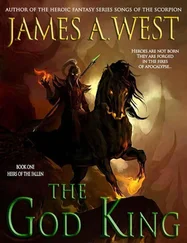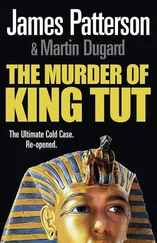James Flecker - The King of Alsander
Здесь есть возможность читать онлайн «James Flecker - The King of Alsander» — ознакомительный отрывок электронной книги совершенно бесплатно, а после прочтения отрывка купить полную версию. В некоторых случаях можно слушать аудио, скачать через торрент в формате fb2 и присутствует краткое содержание. Жанр: foreign_antique, foreign_prose, на английском языке. Описание произведения, (предисловие) а так же отзывы посетителей доступны на портале библиотеки ЛибКат.
- Название:The King of Alsander
- Автор:
- Жанр:
- Год:неизвестен
- ISBN:нет данных
- Рейтинг книги:4 / 5. Голосов: 1
-
Избранное:Добавить в избранное
- Отзывы:
-
Ваша оценка:
- 80
- 1
- 2
- 3
- 4
- 5
The King of Alsander: краткое содержание, описание и аннотация
Предлагаем к чтению аннотацию, описание, краткое содержание или предисловие (зависит от того, что написал сам автор книги «The King of Alsander»). Если вы не нашли необходимую информацию о книге — напишите в комментариях, мы постараемся отыскать её.
The King of Alsander — читать онлайн ознакомительный отрывок
Ниже представлен текст книги, разбитый по страницам. Система сохранения места последней прочитанной страницы, позволяет с удобством читать онлайн бесплатно книгу «The King of Alsander», без необходимости каждый раз заново искать на чём Вы остановились. Поставьте закладку, и сможете в любой момент перейти на страницу, на которой закончили чтение.
Интервал:
Закладка:
And turning on his heel, to Norman's surprise, he went softly and quietly out of the room.
"I am so sorry for Cesano," said Norman. "I did not mean to be rude to him; he is a good man. I am sorry you were so cruel to him. He has not deserved it of you."
"Love is cruel! And, O, Normano, Love is divine!"
"Love is a very good subject of conversation," said Norman, ungallantly. He was tired, and therefore had sagacious misgivings as to what he had let himself in for. "Good night," he added, and turned on his heel.
"Is that all?" said Peronella, opening out her arms.
But the wary Englishman had fled.
CHAPTER IV
INTRODUCING A GOOD BEGGAR AND A BAD KING
Beautiful and broken fountains, keep you still your Sultan's dream?
The Golden Journey to' Samarkand.
Despite any irritation he might feel in finding his pretty flirtation degenerate into a sentimental romance which might end ill, for a week Norman led the golden life, and, after all, the golden life can only be led in sunny lands, by him who has a mistress on his arm and music in his soul, and it never lasts more than one week in the same place. The golden life in Alsander means swimming, sunstruck memories of old walls and young faces; it means prospects down tortuous streets of blue mountains towering to the sky or of blue skies falling into bluer seas. It means the discovery of an elegant fountain down this way, of a Roman inscription hidden in moss down that. It means the first view of the Cathedral square. For the façade of the Cathedral of Alsander, first seen of a sudden some early morning, when the square is still, seems an impossible thing – a mirage: it is so vast, so lovely, and so old.
But for Norman in Alsander, as for many another, the chill Sunday of disappointment followed the week-days of delight. Naturally the first disappointment was Peronella. We have already hinted at Norman's disappointment. It did not vanish, that disappointment: it grew. Can beauty be boring? Ah! ye gods, it can, if one has to talk to it, and it is stupid. But was Peronella not romantic? Oh, yes, she was indeed, but romantic with a "k." She was romantick like the fair misses of a hundred years ago. But is not the romantick the same as the romantic in principle? Oh, yes, indeed, the sentiment is the same; but to be romantic requires intellect, and to be romantick requires none. But was not Peronella educated? Indeed she was, most abominably educated, quite enough to ruin all the fresh roses of her nature. She had not, could not, alas! read Ella Wheeler Wilcox, her poems, but, oh! how she would have loved them had she known them! Marie Corelli she did read; you may buy her works in Alsandrian. But was she incapable of appreciating true literature? Oh, no, she adored Shakespeare and Byron, which she read in translations. You see, her mother had ideas and considered herself a lady. Nevertheless Peronella began to bore Norman: the spell was broken!
And once that spell broken, other enchantments lost their hold. The mirage lifted from the city of Alsander. The illusion began to disappear one day when it rained, and the next day, when Norman walked out alone after a sulky quarrel, it had utterly vanished. The rain had ceased, but the sun had revived the smells of Alsander (which were ubiquitous, insinuating, sometimes crushing) without drying the streets. Norman slipped at every step he took in the glutinous mud. The utter disrepair of the cobbled streets made walking bad enough at any time, heartrending after rain. As for driving, it was a wonder there was a carriage in the place. Across one of the narrowest but most frequented roads gaped a fabulously large hole which had perhaps been opened for some vague drainage or burial operations. The displaced cobbles formed a little circular hill all round this preposterous cavity, which looked in consequence more like the crater of Etna than an honest hole in the road, and carriages had positively to be lifted over the hill into the valley and then over the hill again. A couple of men could have put it straight in half an hour – but this was Alsander.
The question will arise, "But what of the pavements?" In Alsander, as a rule, there are no pavements, the roads being flanked on each side by little running sewers. Where pavements do exist they are used for idle shopmen to obstruct with their chairs or pushing shopmen to bar with their merchandise. They also have a way of coming to an end in the gutter after a few yards, just as you are getting your stride in, and then tempting the foolish to wade across the road by casually sprouting up on the opposite side.
Norman had all an Englishman's hatred of discomfort and waste; he felt that Blaindon could put Alsander to shame in the matter of public works; he feared the smells would give him typhoid, and he began to hate Alsander, and he heard the call of Roon, the God of Going, as it is written in the Gods of Pegana.
Besides all this he was frightened and puzzled. He had fallen into a trap. He was looked upon as a prospective son-in-law by the Widow Prasko – and that was ever so largely his own fault. Englishmen were accounted fabulously rich, and this one was evidently handsome as well. Peronella was already airing her proprietorship to the envy and admiration of the other maids of Alsander. Then Cesano was a nuisance with his little tricks, for he was as sincere as he was ridiculous – the complement of Peronella with no redeeming beauty. He was only at the scowling stage at present, but would certainly advance, in accordance with the sound early Renaissance tradition of the country, to powder in the coffee, snake in the boot, or knife in the back. But for all this, Norman was chivalrous and conscientious enough, and no coward, either; and though he felt it would be best for all concerned for him to leave his baggage and run away by the next train, his sense of honour was in conflict with anything that smacked of dishonesty or funk. Besides, he had not so much money left; he had to decide whether he would try and make a living here or elsewhere, and decide soon. It was part of his travel scheme (which was not so fantastic, after all) to work his passage, so to speak, in some way or other from place to place. But as yet he had not earned a farthing or so much as looked for work. This also depressed him.
Thus it was that the great glass dome of his happiness was shattered, and the last hour of the golden life fell like a golden leaf from the tree of existence. And as for that moment when he heard all the bells of morning ringing in his ears and smiled at a girl with her pails of water, that was not a week but five thousand years ago, when all the skies were blue.
Darkly brooding and much disillusioned, therefore, our hero came to the Royal Castle of Alsander. He had not seen it close at hand before. It stands far from the centre of the town, on the steepest part of the rock, an unconquerable edifice of faceted stone, its Palladian gateway flanked by two stupendous fat uncompromising towers, with hundreds of yards of unbroken, unwindowed wall slanting outwards to the base, continuing beyond the towers to right and left. Two sleepy sentries, in a fine old uniform, holding in their hands some weapon, vaguely mediaeval, guarded the entrance.
The strength, one might almost say the ugliness, of the castle pleased Norman's mood. He was just beginning to enjoy the scene, leaning by a fine old statue which stood in the midst of the square on a low pedestal and represented, standing twice life-size, helmeted and hand to sword, the hero King of Alsander, Kradenda the First, the builder of the castle. He was gazing round intently, when an old crouching beggar interrupted him and asked him in a sort of hoarse whisper if he wanted to see the castle. Norman, with a disgusted and pitying glance at the filthy rags of the mendicant, offered him silver to be left in peace.
Читать дальшеИнтервал:
Закладка:
Похожие книги на «The King of Alsander»
Представляем Вашему вниманию похожие книги на «The King of Alsander» списком для выбора. Мы отобрали схожую по названию и смыслу литературу в надежде предоставить читателям больше вариантов отыскать новые, интересные, ещё непрочитанные произведения.
Обсуждение, отзывы о книге «The King of Alsander» и просто собственные мнения читателей. Оставьте ваши комментарии, напишите, что Вы думаете о произведении, его смысле или главных героях. Укажите что конкретно понравилось, а что нет, и почему Вы так считаете.











